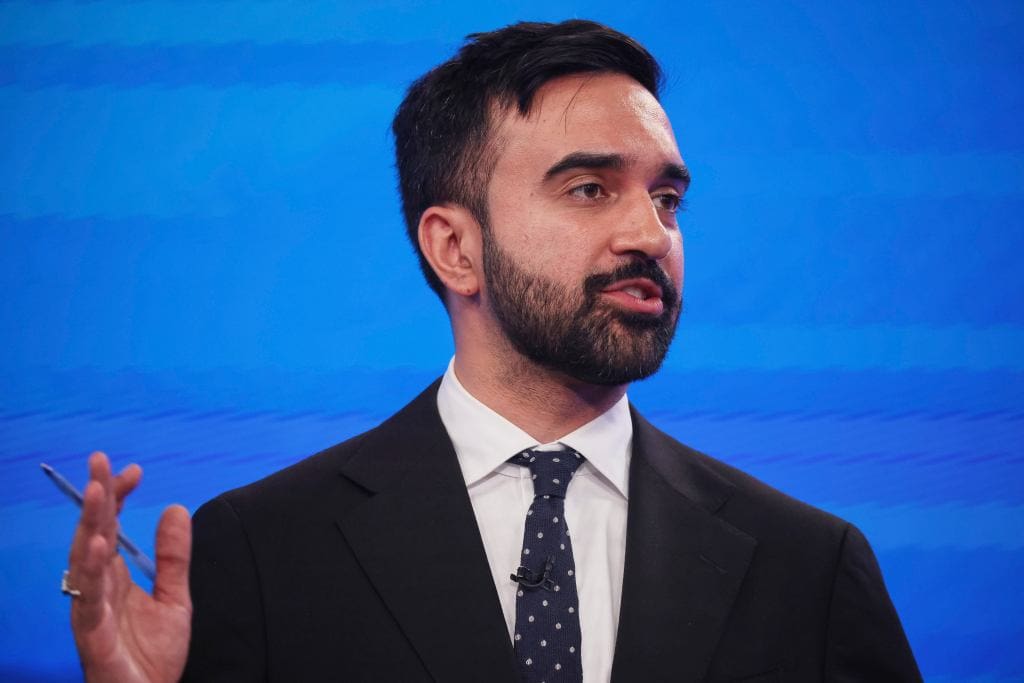Health Watch: Wellness, Research & Healthy Living Tips
One would never know it from watching the campaign, but the next mayor of New York City will face the most challenging fiscal environment since the financial crisis. President Trump’s chaotic tariff policy is weighing on businesses large and small, and his administration shows no signs of providing relief from the damage it is causing. To the contrary, it is clawing back desperately needed funds and attempting to slash the Medicaid and SNAP support on which so many New Yorkers depend.
Among the candidates, Zohran Mamdani, who has surged to second position in primary polling, is most oblivious to the fiscal storm clouds approaching the city. He is basing his campaign on blue-sky promises: universal, city-funded child care from six weeks to five years old at a cost of more than $5 billion, free bus service, a major expansion of eligibility for rental subsidies, and even city-owned grocery stores.
He further proposes freezing rents on stabilized units and investing $70 billion in affordable housing. The problem with these proposals? They are impossible to fund.
The cost of Mamdani’s plan exceeds $10 billion annually, which Mamdani claims could be entirely offset by new revenues, including $4 billion from a 2% surtax on the city’s high-earners and $5 billion by asking Albany to increase corporate income taxes.
Here are the problems with this approach.
For starters, the city already faces annual budget deficits of nearly $10 billion within four years, assuming a benign economic forecast. We depend on the federal government to provide $10 billion annually, and the state, itself reliant on Washington for a third of its budget, provides a further $20 billion. Mamdani’s program does not acknowledge, much less plan for, the growing holes in the budget.
Mamdani suggests that his additional taxes would be easily absorbed by New Yorkers and that criticism of his approach is “fearmongering.”
He repeatedly states, for example, that by increasing the state’s corporate income tax by 4% from its current level of 7.25% (the revenue from which would apparently all be sent to the city), he would just be matching the corporate rate for New Jersey — hardly a radical proposal.
What Mamdani fails to point out is that corporations in the city are also required to pay a separate New York City income tax of 8.85% and an MTA surcharge equal to 30% of the state liability — or another 3.3%, if Mamdani’s 4% tax increase were adopted. Instead of corporations paying the same rate in New York City as they would in New Jersey, their actual rate could approach 23.5%, more than twice that of New Jersey and by far the highest in the country.
Similarly, his 2% income tax surcharge would increase combined state and local taxes on the wealthy to between 15.6% and 16.8% — again, by far the highest in the nation.
Mamdani’s campaign has argued that this increase would be offset by tax cuts in Trump’s “big beautiful bill,” but the bill merely extends, rather than reduces, the top federal rate. And a technical provision eliminates the pass-through entities tax deduction, which will further increase the effective tax rate on the highest earning New Yorkers — who account for around half of the city’s income tax receipts and have a high propensity to move. Indeed, many have already left in recent years for low-tax jurisdictions.
But it is Mamdani’s proposal to borrow $70 billion to finance affordable housing that most requires a suspension of disbelief. The city has only $30 billion of room under its state constitutional borrowing limits. The city also adheres to a debt service policy that limits annual payments to no more than 15% of the city’s tax revenues.
The roughly $5 billion in debt service required to borrow $70 billion would put total debt service at more than 20%, well above the 15% threshold, making New York look more like Chicago from a credit perspective. Violating both policies would lead to downgrades from credit rating agencies, raising the cost of financing for the city’s capital projects and straining its ability to provide services.
The attractiveness of Mamdani’s proposals to voters is clear. His massive spending plans speak to real challenges facing New Yorkers, namely the cost-of-living crisis and our dire affordable housing shortage. But Mamdani’s funding solutions are so disconnected from New York City’s fiscal realities that they would amount to, at best, empty rhetoric and, at worst, significant harm to our city’s fiscal stability.
Weiss is a former counselor to the treasury secretary under President Barack Obama.
Read the full article on the original source


